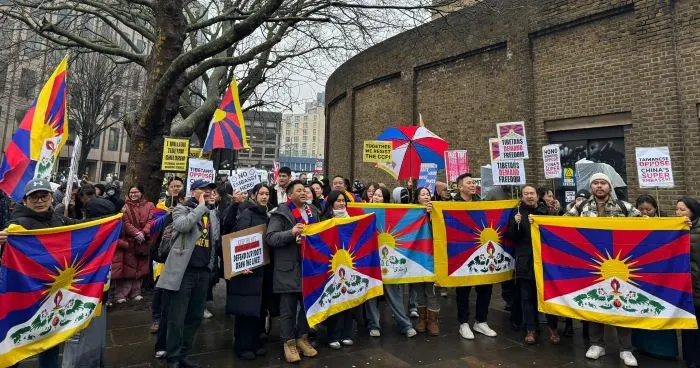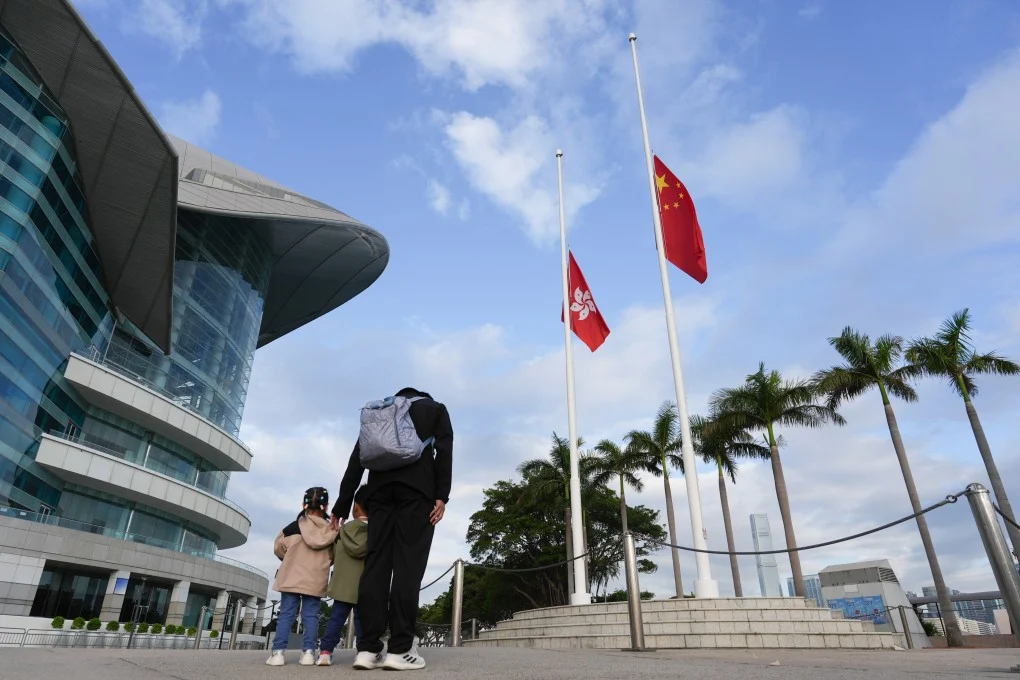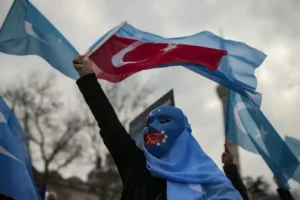‘Chinese Banksy’ Exposes Beijing In NFT Series; Calls For Boycott Of Winter Olympics
A Chinese dissident artist based in Australia, Badiucao, who describes himself as ‘hated by Chinese Gov’ has launched an NFT collection protesting the Beijing Winter Olympics which began on Feb 4.
In his series, the artist who is dubbed as ‘Chinese Banksy’ portrays a figure skater slicing up a red orchid flower, the symbol of Hong Kong, a snowboarder on top of a CCTV camera, an ice-hockey player attacking a Tibetan monk among others.
The provocative depictions are described exposing “the Chinese government’s oppression of the Tibetan people, the Uyghur genocide, the dismantling of democracy in Hong Kong, the regime’s omnipresent surveillance systems, and lack of transparency surrounding the COVID-19 pandemic”, as per the NFT website.
“Each of the five works will be minted as 2022 editions, and collectors will have the opportunity to write their own message of opposition to China’s authoritarian regime onto the blockchain as part of the minting process, preserving it as a public decentralized record of protest”, the site further says.
The Beijing 2022 Olympics NFT collection was made by Badiucao as part of the Art in Protest residency, a collaboration between the Gray Area Foundation for the Arts and the Human Rights Foundation. 10% of the proceeds will go towards the Art in Protest residency.
Another dissident artist from China, Ai Weiwei who helped design Beijing’s Bird’s Nest stadium for the 2008 Summer Olympics has also vehemently called out the Chinese government. “Since 2008, the government of China has further strengthened its control, and the human rights situation has further deteriorated,” Ai told AP. He was jailed in 2011 in China for unspecified crimes and now lives in exile in Portugal.
“In China there is only the party’s guidance, state-controlled media and people who have been brainwashed by the media,” Ai added. “There is no real civil society. Under this circumstance, Chinese people are not interested in the Olympics at all because it is simply a display of state politics. Nationally trained athletes exchange Olympic gold medals for economic gains for individuals or even for sport organizations; this way of doing things deviates from the Olympics’ original ideas,” he said.
Asked if he planned to go back to China, he said he was doubtful.
China has repeatedly denied allegations of human rights abuses and crackdown on the Uyghur community that the U.S. government and others have called genocide. The country’s suppression has led to diplomatic boycotts of the games by the United States, India, Canada, Australia, Denmark and other countries.
(With inputs from AP)













